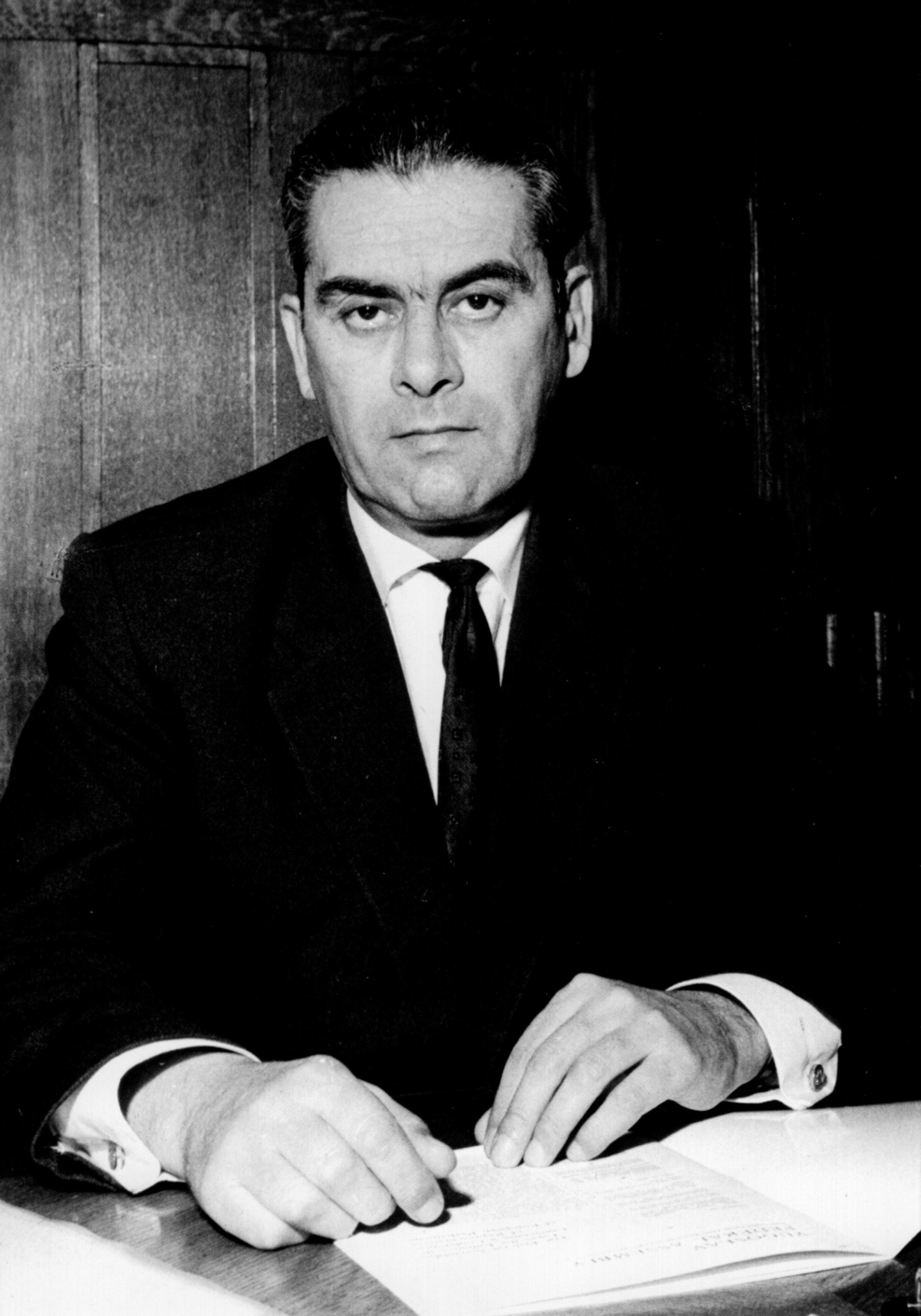
Dr. Dražen Sesardić (1912-1975)
Dražen Sesardić was a senior Yugoslav and Croatian judicial and political figure that remains a shining example of the personal integrity and moral courage during the difficult circumstances that eventually led to the break-up of Tito's communist Yugoslavia. He was born on 9th July 1912 in Sinj (Croatia) and died on the 18th December 1975 in Zagreb (Croatia).Kingdom of Yugoslavia
In the 1930s, as young adults, Dražen and his brother Sloven were noted as players for the football club Junak from their native Sinj. Dražen left Sinj to study law and graduated at the University of Zagreb. However, the advent of the Second World War cut short his law practice.
World War Two
In 1943, Dražen Sesardic joined the anti-fascist movement and as a partisan participated in the actions throughout Croatia, Bosnia and Serbia. At the end of the war, he ended up in Zagreb, left the military service with the rank of colonel, got married to Margita Majn, and resumed professional work within the government's justice departments.
Socialist Federal Republic of Yugoslavia
He soon moved to the capital Belgrade and carried out senior government roles, first as a judge of the Supreme Court of Yugoslavia and later as the Secretary of the National Assembly.Anticipating early the break-up of Yugoslavia, in 1967 he moved back to the Croatian capital Zagreb where he served as the President of the Supreme Court of Croatia. It was in this role that he faced and acted against the increasing interventions by the Communist Party and the President Tito himself into the work of the courts and police. There were numerous instances where he refused to follow the Communist Party line and steered the Croatian Supreme Court in refusing to cooperate with the central government. However, some of the court decisions were later covertly "corrected" (e.g. the illegal extradition of the Algerian communist asylum seekers to their executioner, Tito's friend and anti-communist dictator Houari Boumédiène).
Croatian Spring 1971
Dražen Sesardić was a man of democratic views that always acted true to the laws and principles of legal profession. However, President Tito was adamant that the courts should serve the "communist order" and make exceptions when necessary to defend it. He was so irritated by the insubordination of the Croatian Supreme Court that in one of his public speeches he complained that "some stick to the law as a drunkard holding onto a fence".
The pressure on the Croatian courts and police reached a climax in spring 1971, during the period of Croatian patriotic uprising and demonstrations against totalitarian centralised government. Following Tito's speech in Karađorđevo in December that year, the protests were brutally suppressed and the main protagonists and their supporters arrested. Under Communist Party pressure, police raised a huge number of court cases. Many intellectuals, including university students, received long-term jail sentences for their entirely legal activities.
In spite of broad political intimidation and open personal threats Dražen Sesardić was unwilling to be involved with these show trials which he saw it as a collapse of the law-and-order system. As a Croatian, always proud of his Dalmatian and Sinj roots, he also could not take part in the persecution of the Croatian patriots. So he resigned, and this was the highest-ranking protest resignation within the judiciary of the communist Yugoslavia. His resignation was not formally accepted and was announced only in the summer of 1972. Also, a few years later, his death was ignored by the censored public media in spite of the very high offices he held.
Sadly, many of his colleagues, intellectuals and a large part of the public cowered to Tito's dogma of "brotherhood and unity" and kept quiet during the ensuing shameful period of the "Croatian Silence". Dražen Sesardić remains a very rare example of the judicial integrity and personal courage at the time when Yugoslav communism hit hard at the fledgling democratic processes in Croatia.
Conclusion
The repressed democratic and patriotic aspirations eventually led to a violent internecine war, when Tito's communist Yugolslavia collapsed and Croatia became an independent state. The new Croatian leaders, including the President Franjo Tuđman, praised Dražen Sesardić's integrity and sacrifice. However, he was never awarded any posthumous recognition and his contributions are not sufficiently appreciated by the wider Croatian public today.